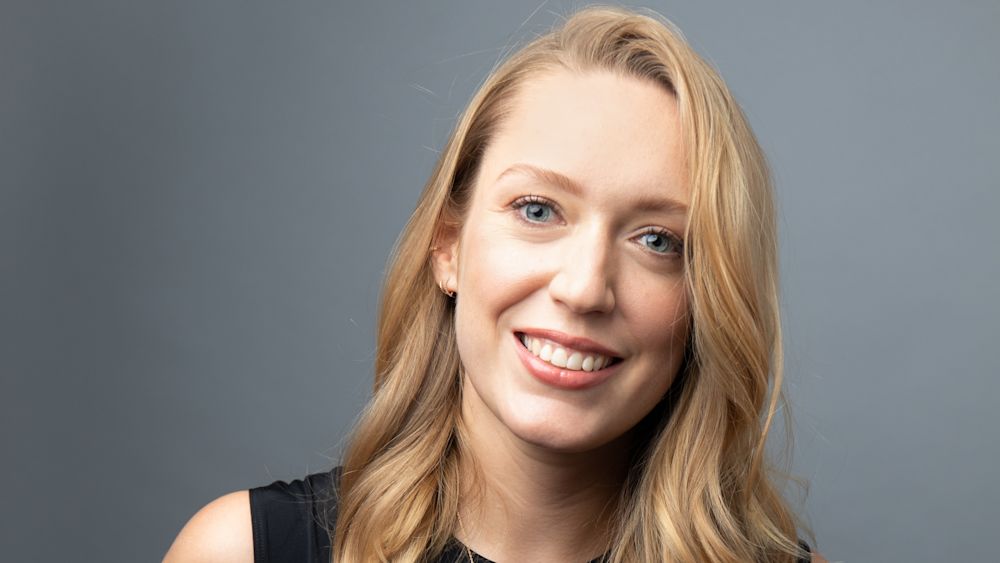- Iterate
- Meet The Team
- How to Bootstrap and Fundraise for Your Startup as a Female Founder
How to Bootstrap and Fundraise for Your Startup as a Female Founder
Table of contents
Victoria Wejchert is building the future of human networking with Kinship.

Throughout your career, you’ve probably heard a lot of people tell you about the importance of networking, and building strong relationships with the individuals you encounter in your life, at school or in workplaces.
In fact, studies have shown that networking often leads to positive outcomes, including improving employability at work and building a strong personal profile.
Although this is the case for many people, keeping in touch with the different people you meet on a daily basis can become overwhelming.
For this reason, Victoria Wejchert decided to build Kinship — a notebook app that allows users to connect and make notes on people in their professional and personal networks.
The conversation that sparked an idea
Wejchert was born in Dublin, Ireland to Polish immigrant parents. Her family eventually moved back to Poland in the 90s, and eventually, Wejchert started a career in investment banking.
After deciding that she wanted to become an entrepreneur, she left her job as Director of Sales and Business Development at Ever-Green Polska, a Christmas tree sales company, and started her own healthy fast food restaurant chain, called Friends - Taste Your Time in 2014. Within three years of launching her company, Wejchert built her chain to over twelve different locations and eventually sold it to a large private gastronomy company.
Despite her success, Wejchert noticed that she had lost touch with a lot of people that she cared about both professionally and personally. So she turned to the one person in her life that she knew was amazing at managing relationships: her mother.
“I asked her, how do you do it? You meet journalists and remember exactly what you spoke about three years ago,” Wejchert told The Org.
It was through this conversation that Wejchert first learned about her mother’s personal networking system, which included many agendas, calendars and notebooks. She became fascinated and started speaking to people similar to her mother.
“I discovered that they all had a system, a mix of Excel spreadsheets and calendars, but all of them, no matter how successful they were, hated their system and wanted to find something better,” she said.
From there, Wejchert came up with the idea of Kinship. She bootstrapped the company in 2018 with a little bit of support from friends and family and eventually raised a seed round of capital led by Antler.
Raising money as a female founder
The process of fundraising for Kinship has not been an easy one. Wejchert received a lot of pushback from potential investors despite having a steady number of users on her app and a clear revenue stream.
“I met with an investor who told me, ‘I don’t care about other people’,” Wejchert said. “But most of the pushback was around wanting to see more traction and wanting to see a more significant amount of revenue.”
Female-founded startups raised an estimated $40 billion in venture capital last year. Although that may seem like a significant amount, it is roughly only 18% of the total $239 billion that was poured into startups in 2021. Among investors, women make up only 15% of all partners, and there are only an estimated 1,000 female angel investors.
“So many female businesses are organically grown because so little of all the available financing actually goes to women founders,” Wejchert said.
Despite all the pushback, Kinship is growing steadily. It currently has a small team of front-end and back-end developers, a Head of Product and a designer, and plans to move toward raising a Series A later this year.
“In the next five years, I see us being a tool used by companies in a wide range of sectors, everything from education to wealth management,” Wejchert said. “Your relationships are your biggest asset, and it’s only growing with value as you get older.”
Sign up now: Stay up to date, level up and hire better with our behind the scenes newsletters at the world’s top startups.


The ORG helps
you hire great
candidates
Free to use – try today